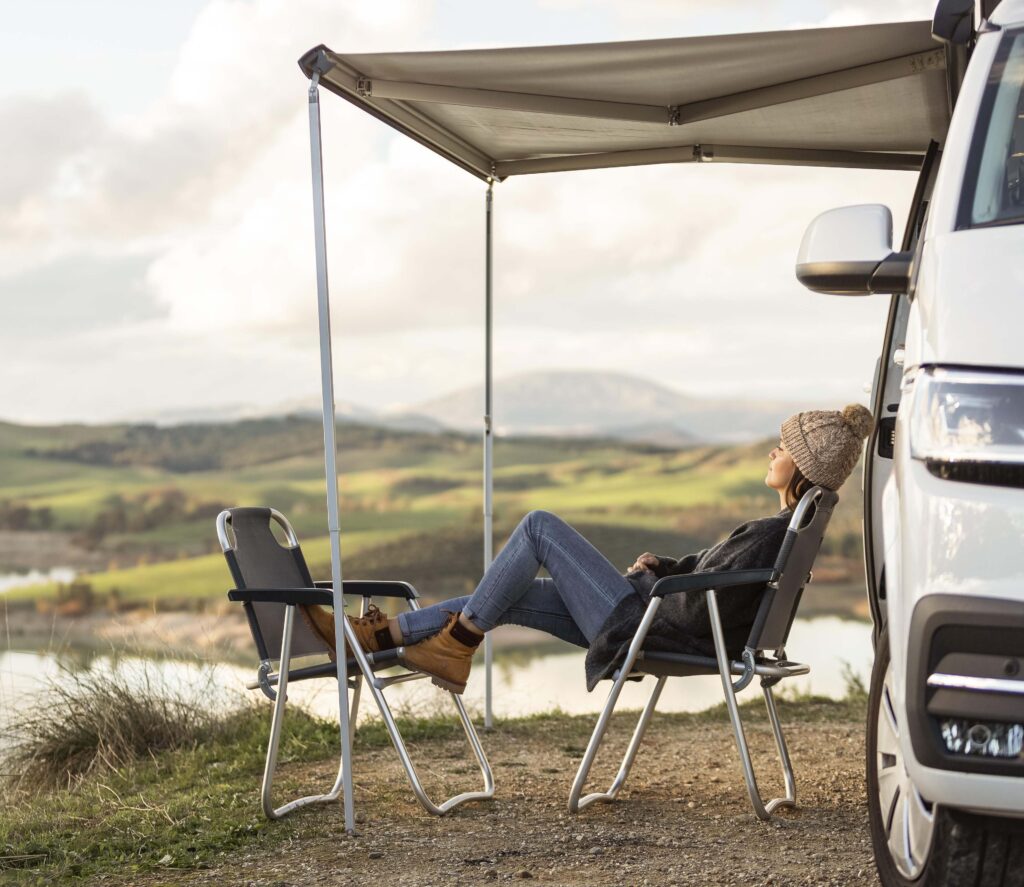The Joy of Off-Grid Living

Off-grid living allows you to experience the Eco-NomadTM way of life away from the constraints of a modern lifestyle. Enjoying the wonders of nature from the comfort of your home on wheels gives you a deeper connection with nature and a more sustainable way of living. Whether exploring the red outback or parked by a pristine beach, the independence of living and camping off-grid can be profoundly liberating and give you the freedom to explore the country at your own pace.
In this article, we’ll explore some benefits of living off-grid in your home on wheels and offer practical tips to minimise your environmental footprint without diminishing the experience.
Embracing the freedom you experience when living off-grid is more than just surviving without conventional utilities. Adopting the Eco-NomadTM lifestyle on the road empowers you to experience nature in its purest form and thrive in harmony with the environment.
Let’s look at some sustainable practices for living off-grid in a caravan, campervan or camper trailer.
Harness Renewable Energy
Generating power is one of the most important functions of living off-grid. The most practical way to harness power off-grid is using solar panels, which provide a clean, sustainable and free power source. Ensuring you have a reliable off-grid solar setup reduces your reliance on non-renewable resources, ensuring you are self-sufficient and fuelled by nature. In windy areas, off-grid wind energy in the form of portable wind turbines is a great addition for an extra energy boost, especially on prolonged rainy days.
Plan your energy usage
Morning hours usually produce minimal light intensity resulting in low output levels. As the sun rises in the sky, its light intensity increases, leading to increased system output.
Most solar panels reach peak production between 10am and 2pm when the sun is at its highest point in the sky. As the day progresses and the sun begins to descend, the output of solar panels gradually decreases. However, they can still generate power until sunset, providing a continuous and sustainable energy source throughout daylight hours.
You can Google the amount of wattage used over time or (amp/hour) for all your implements, which gives you a good idea of their total wattage usage.
Plan to run high-usage energy items during peak sunlight hours, especially those that use heating elements or run for prolonged time, such as washing machines.
Use energy-efficient appliances
Choose to use appliances that are energy efficient, like LED lighting, low-energy fridges, and gas or induction cooktops. Using energy-efficient appliances lowers your power consumption and significantly reduces your carbon footprint, bringing you closer to being carbon neutral. Energy-efficient appliances are key to managing your stored energy, making off-grid living more sustainable.
Water Conservation
Water is a precious commodity, especially when living off-grid. Equip your caravan with a good quality water filtration system and practice water conservation by collecting rainwater, taking shorter showers and re-using greywater for tasks like flushing toilets when safe and sanitary to do so or by using the wastewater to benefit the local flora.
Use a tarp or your caravan’s awning as guttering to filter the rainwater into a bucket or small water container. You can either put the water back into your caravan’s water tank if you have a good water filter installed or use the collected water for laundry, washing, or flushing the toilet.
Conscious consumption
Constantly being mindful of consumption and waste is fundamental when living off-grid. Where possible, choose reusable and eco-friendly products, from biodegradable soap to reusable water bottles and crockery. Recycling plastic and glass containers instead of throwing them out and composting organic matter are two small steps that make a big impact. By managing your waste, you contribute positively to the environment.
And last but not least…
Always be a responsible camper
Choose your off-grid campsites wisely and always follow the principle of “leave no trace,” guaranteeing you leave the site as you found it or better than you found it. Avoid damaging sensitive environments by sticking to established trails and roadside campsites.



